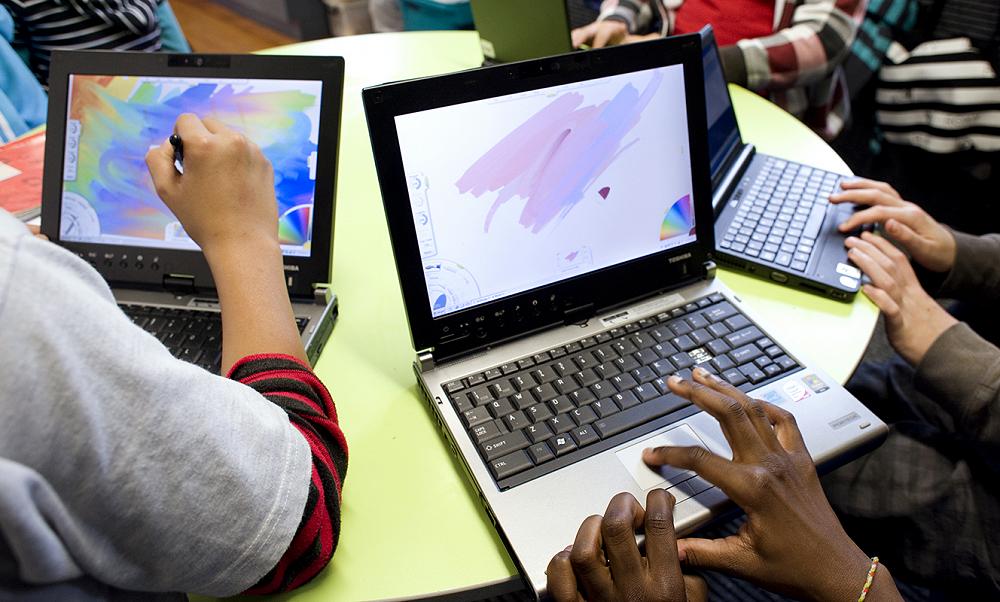
Children's use of technology
This newsletter, the second in a series on technology use, focuses on the importance of adults laying the foundation for lasting success in their children’s use of technology.
Harvard-trained psychiatrist Shimi Kang uses the analogy of fire and technology. Those that benefited most from fire, when it was first discovered, were those who could control it. Similarly, we need to be in control of technology otherwise it can be harmful for us. As adults we need to support and teach our children to use technology well so they are not harmed, just as we teach our children to use fire well so they are not burned.
We are fortunate that we have a number of excellent support services at our fingertips. I encourage you to think about the key points below and to access the accompanying websites for expert advice on how to support your son’s technology use.
Take an interest in what your son is accessing online. Not only will this help you to engage in conversation with something that is important to your son (remember it is okay if you are not that interested in what your son is looking at online but it is likely to mean a great deal to him if you show some interest!) but it will also help you to ensure that your son is safe online and engaging with age appropriate activities. An example of a website that can assist you with this is:
Common sense media. This website rates movies, television shows, books, games and apps, plus more. Their mission is to ensure digital wellbeing for children so that they can thrive in the digital world. You could use this website alongside your own views and values to make decisions about what your son is engaging with online.
Be prepared to have challenging, and at times possibly uncomfortable, conversations. Online bullying, pornography and grooming are real issues for children, including primary school aged children. John Parsons shared in his Medbury parent workshop that by the age of twelve 75-80% of young people will have seen some form of pornography, usually unintentionally, online. Not only is this potentially upsetting and harmful, but there are also unrealistic messages related to pornography. If you do not have conversations with your son about online bullying, pornography and grooming, he will not be prepared to be safe and he will not understand that what he may be exposed to is damaging. Again, we are fortunate that there are a number of resources to support parents in these conversations:
Keep it real online: this website provides tools and advice for parents on challenging topics such as bullying, pornography and grooming. This website also has a section for young people to access if they are facing an issue online. If your son is nearing high school age you may like to show this section to him alongside talking with him.
Netsafe: Parenting is another excellent online tool to support parents, as well as having its own section for young people. Some of the articles available on the parent page include: Advice on how to talk to your child about porn; TikTok: Advice for parents; Are you a sharenter?; Understanding young people’s online challenges; A parent’s guide to Instagram.
Keep communication and support lines open. This is vitally important given some of the challenging topics mentioned above. Your son needs to know that no matter how uncomfortable and alarming something may be, he can talk to an adult when he needs help and support. In addition to the videos shared in the first newsletter in this series, here are some further videos John Parsons has produced to assist parents with open communication about technology use.
Circle of Lighthouses: this video helps children to identify adults they can trust, in addition to parents and caregivers, so they have a range of adults they can approach and rely on if they need support.
Leaving primary school: this video is helpful for parents whose sons are about to transition to high school. It talks about the importance of still having involvement with your son’s technology use for the first few years of high school.
Families that eat together heal together: this video talks about a family approach to setting boundaries and establishing appropriate behaviour so that parents act as role models to their children as well as being there to support their children.
I hope that this newsletter has provided some ideas and resources to help you lead the way with your son’s technology use.
Jenelle Hooson
Jenelle is a Registered Provisional Member with NZAC (New Zealand Association of Counsellors).
If you wish to discuss the services the School Counsellor can provide, please see your son’s homeroom teacher or Scott Johnson: scott.johnson@medbury.school.nz.